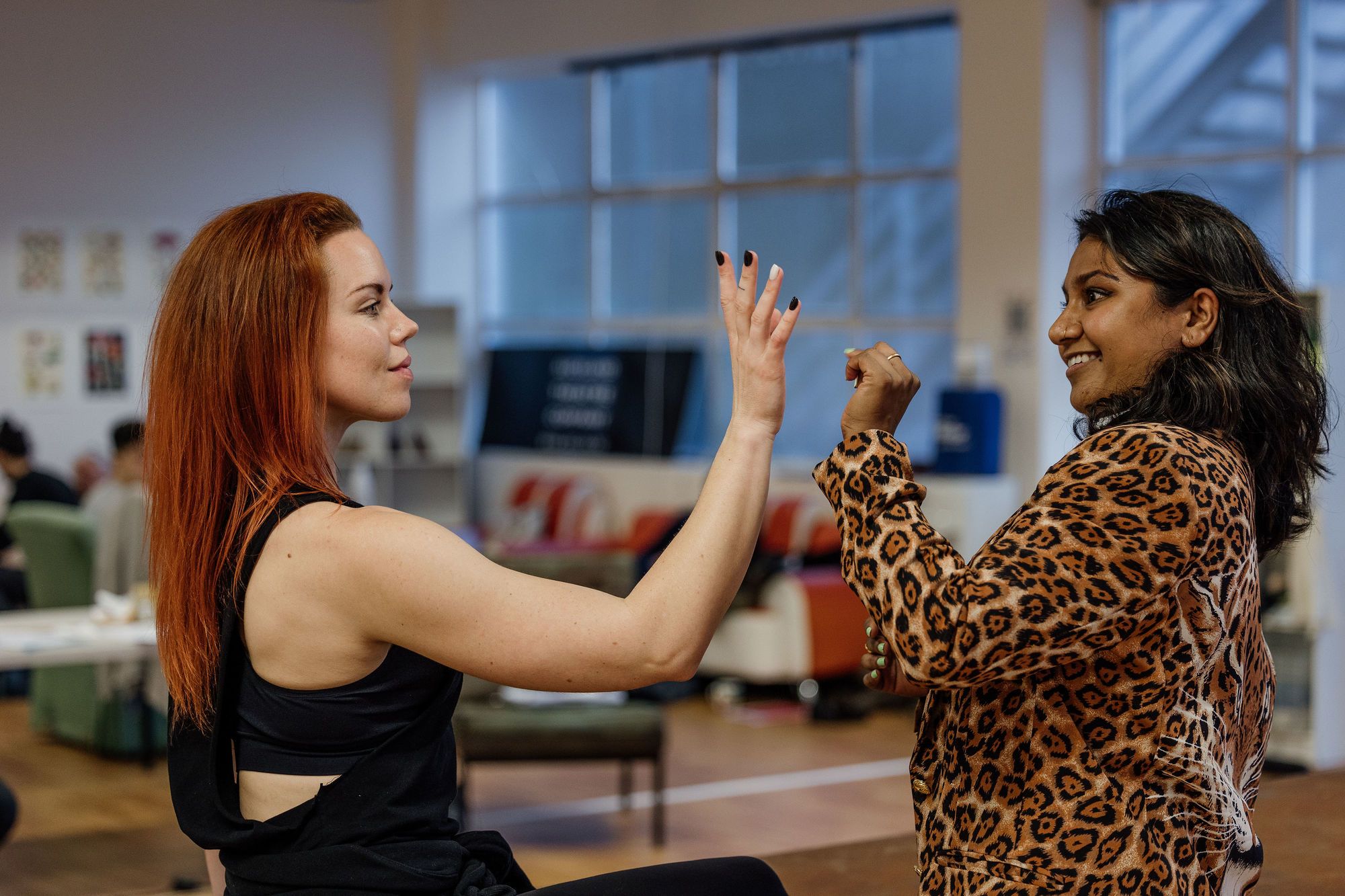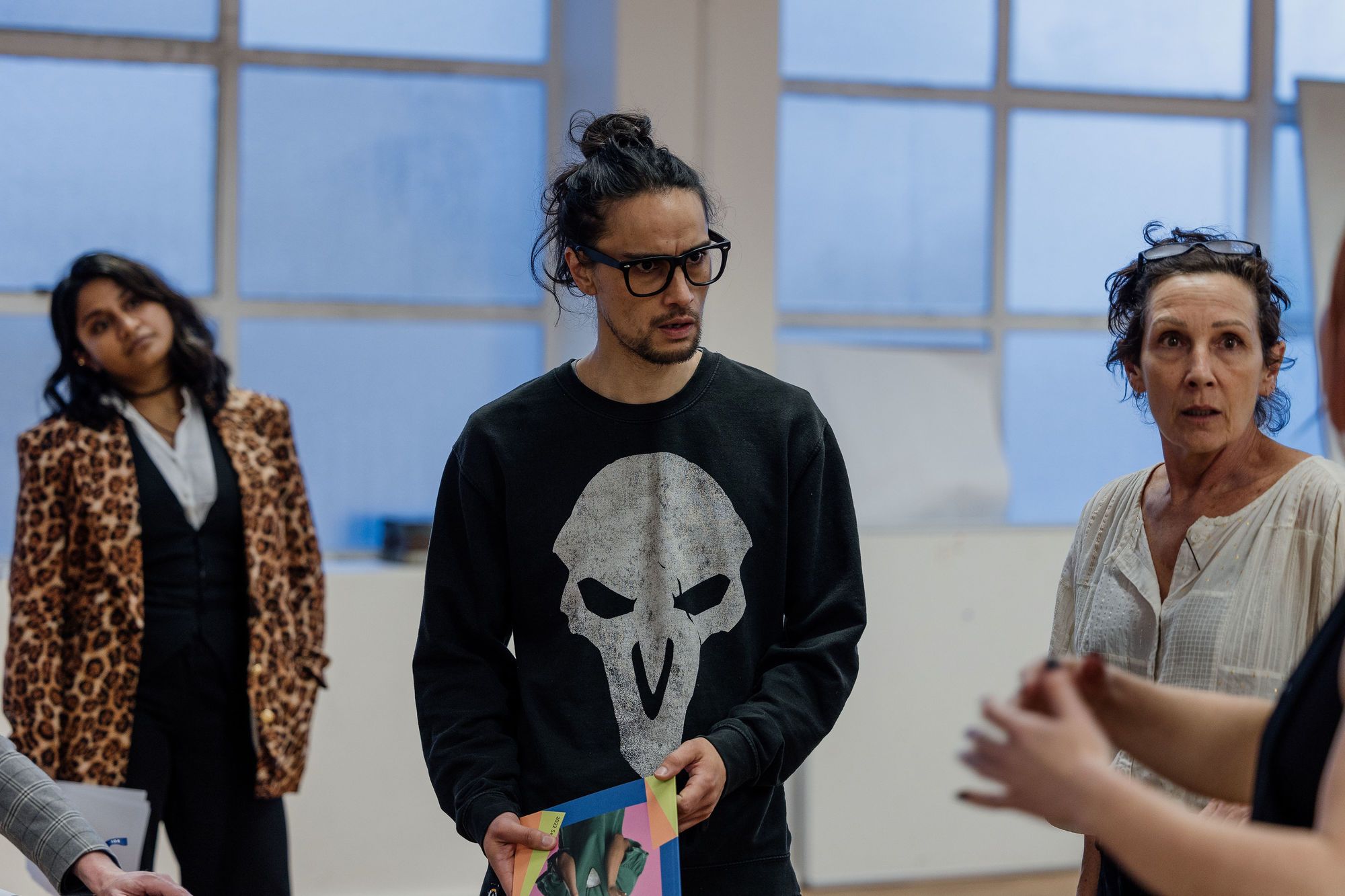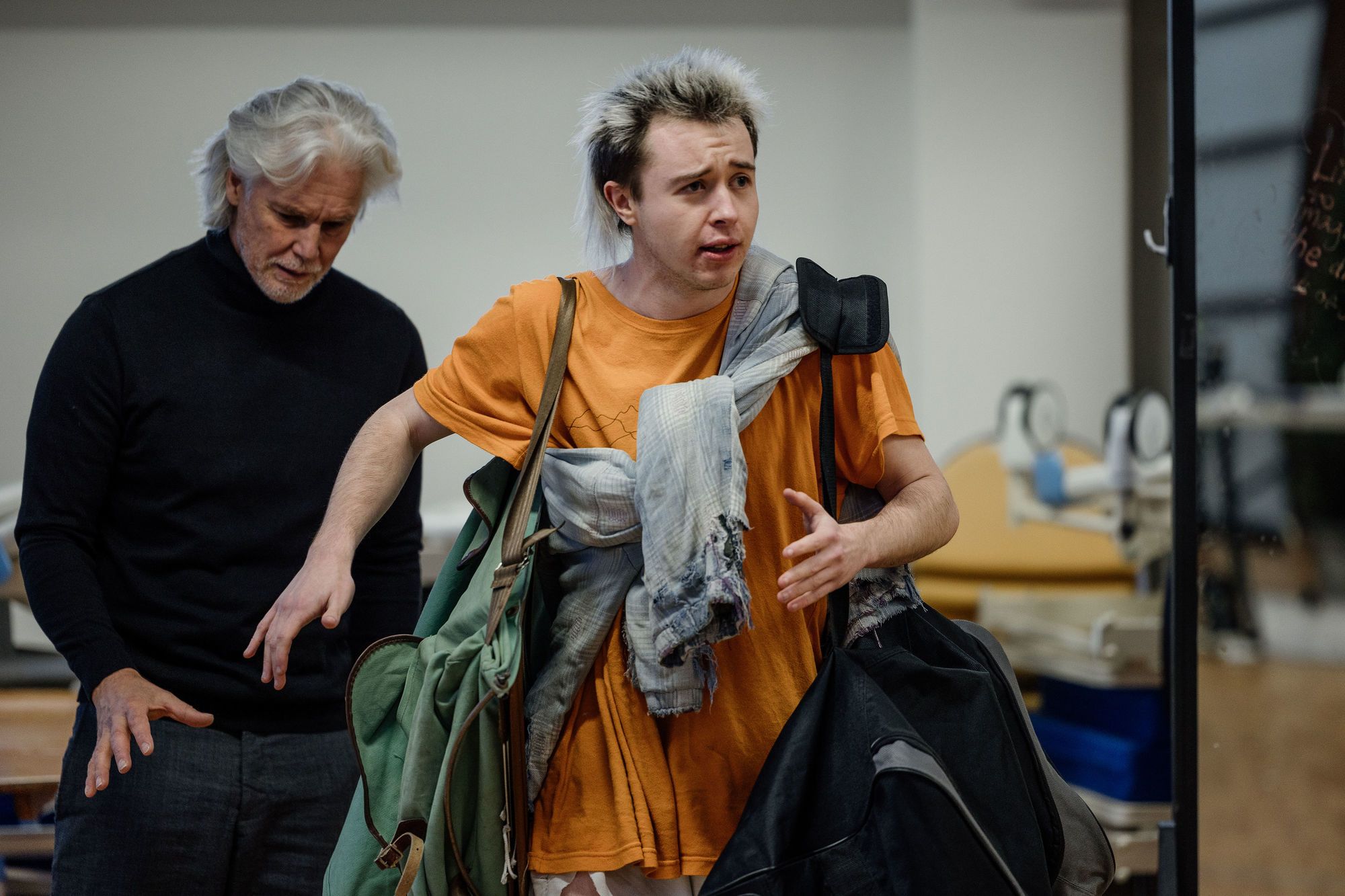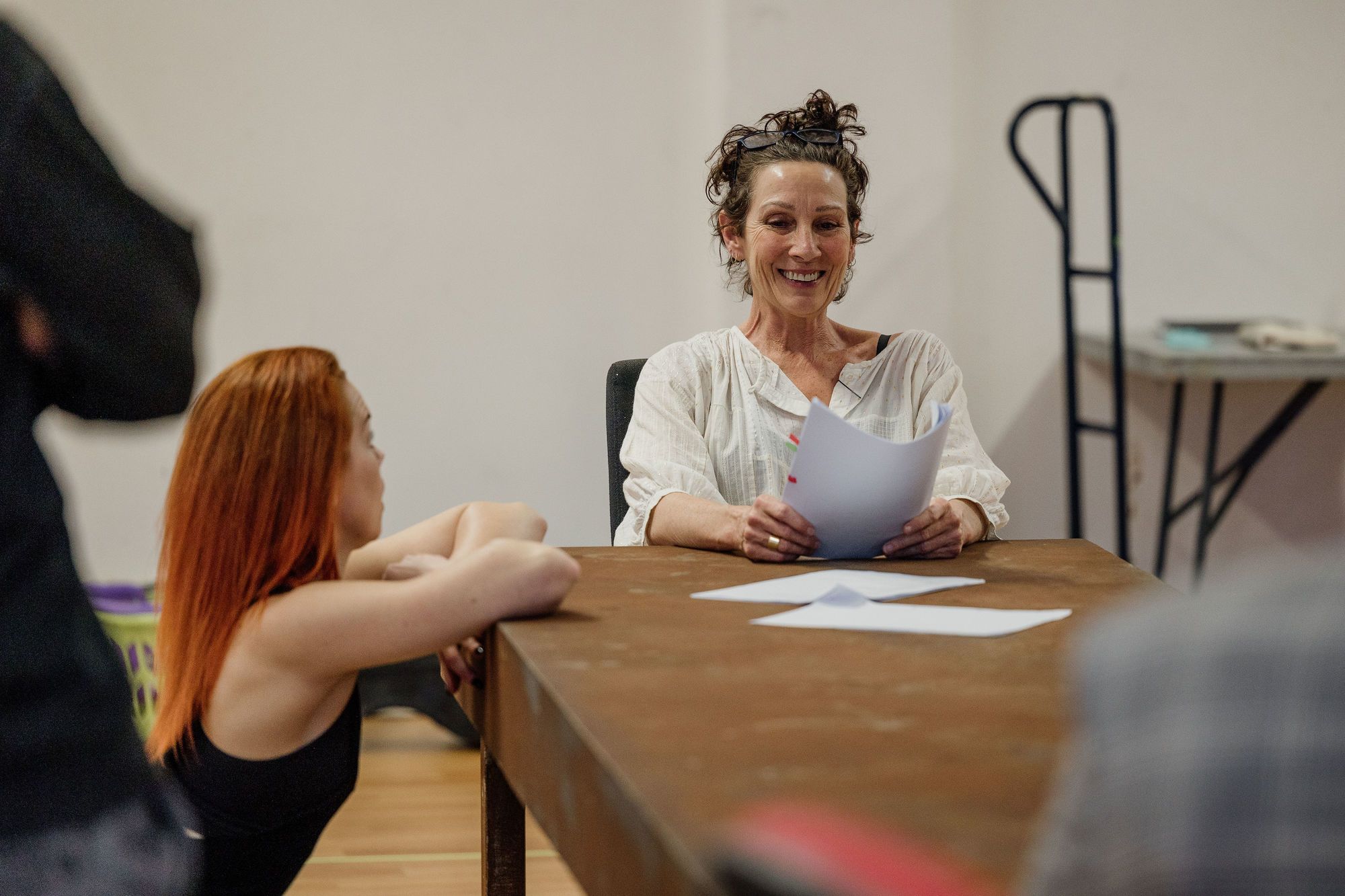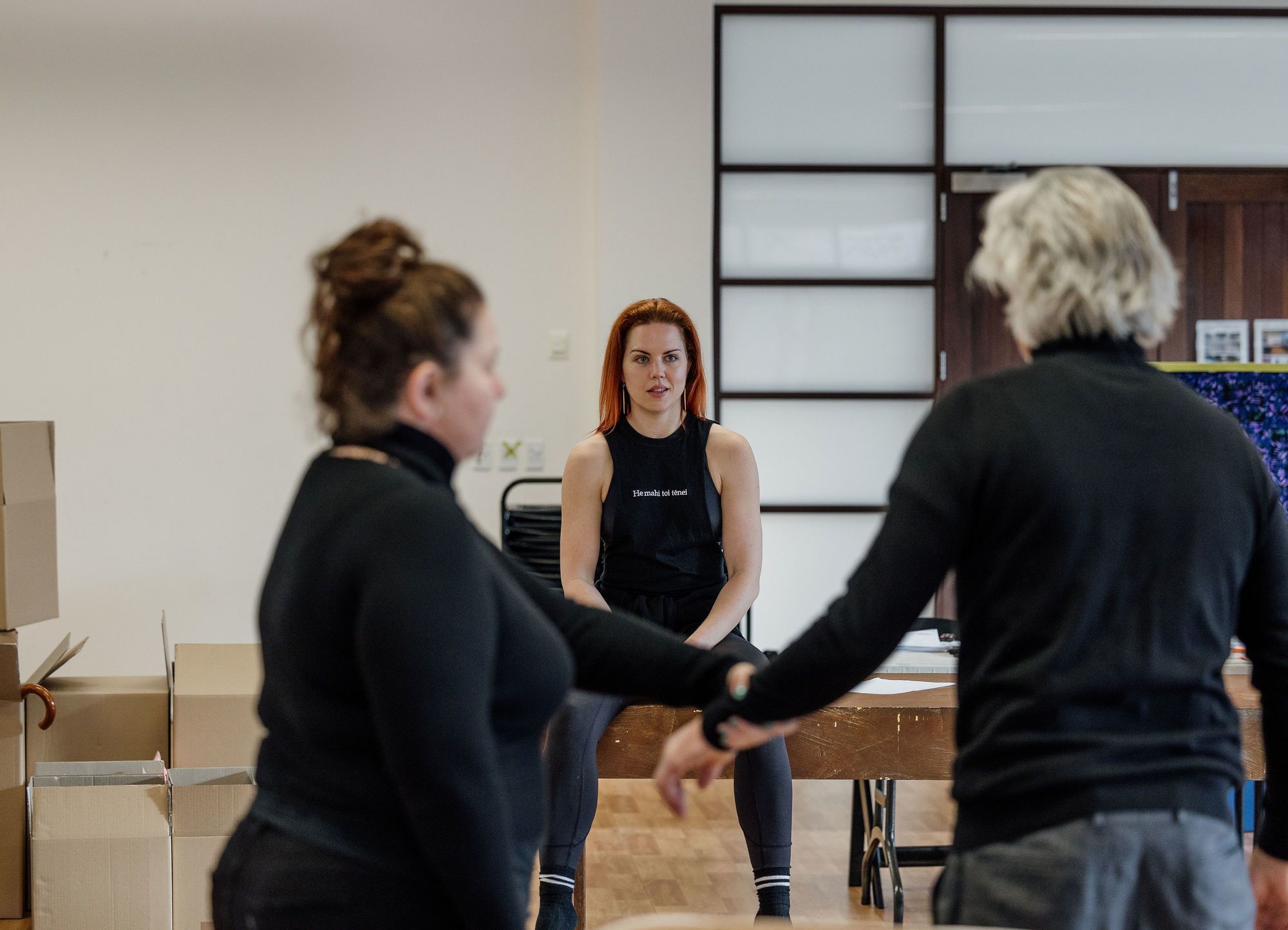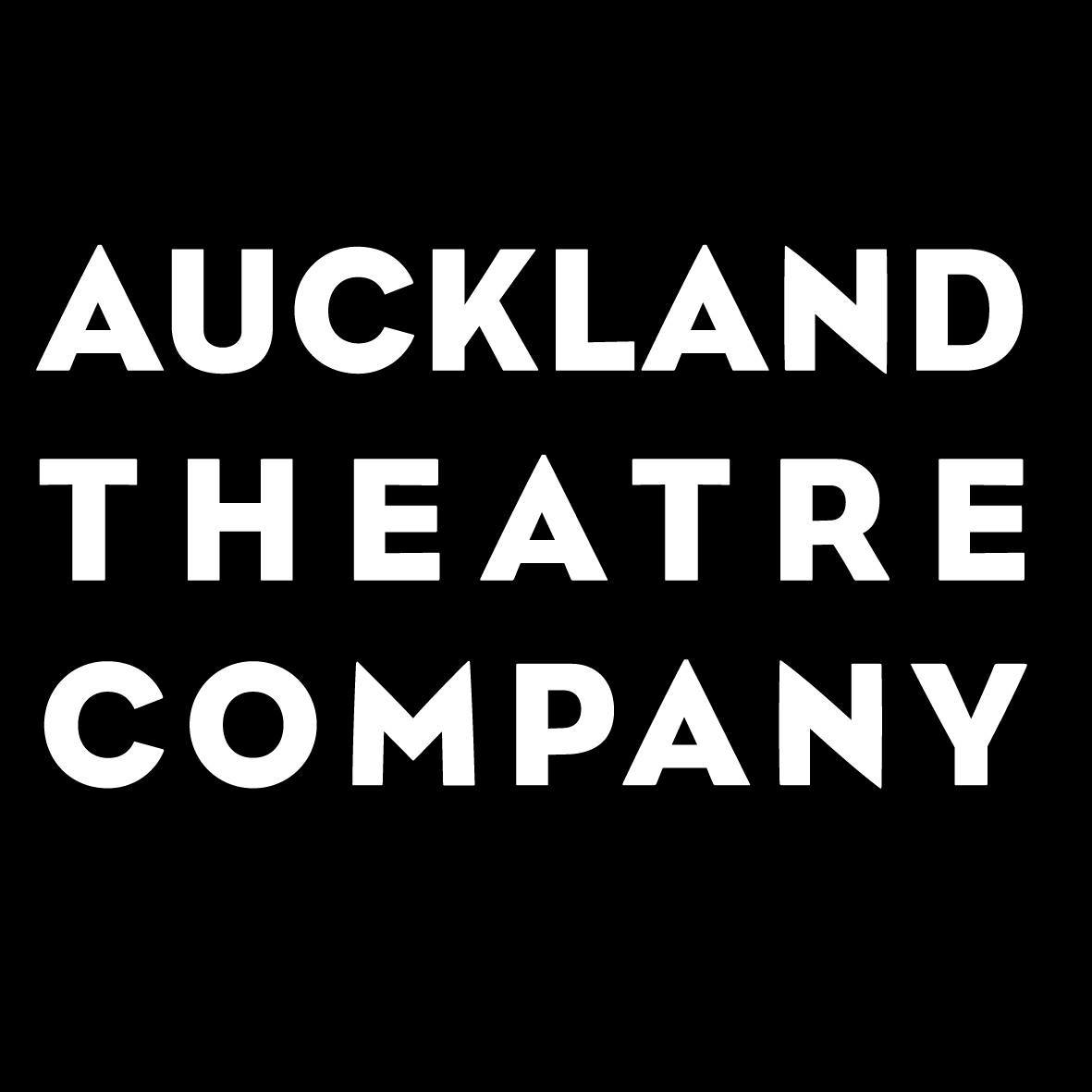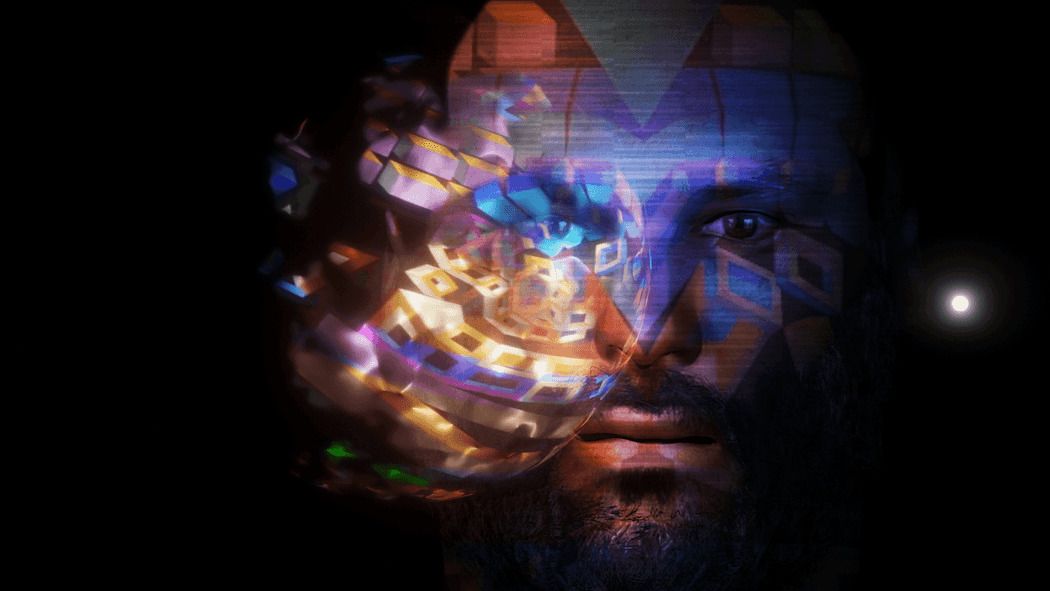On the Future of Artificial Identities
Rangituhia Hollis reflects on his 80s upbringing, The Jetsons, and reimagines the future possibilities of AI in response to The Made, by Auckland Theatre Company.
When Pris – in the 1982 Sci-fi film, Blade Runner– walked amongst the early, playful robots that predated her manufacture, she stood face to face with her evolution. She stood in the workshop of her designer – and he didn’t look well.
But that was a broader Blade Runner issue – its future was grimy. The street food looked worth a try, but its narrative of creation looked fragile or already broken. That’s the hard sell of it, to get yourself face to face with your creator – if you have a choice, you probably invest more, or spend more money when the outlook is good. Capitalists have been looking deep through the eyes of humanity to see what’s missing from its ‘souls’ since before there were corporations. Capitalists are gonna find any empty spaces in there and drive wedges in humanity until there’s no money left.
In The Made, the father’s of industry are still there. Capitalism is still dominant. But the creator as a Mother, or Mother as a creator shifts to foreground complexities of creation - when maybe the world just doesn’t get it. When the world is too caught up in a single dream of the future. For an industry creating the future, anything outside of what has long been a patriarchal paradigm equates to risk. In this play, that risk, and the autonomy to step outside of that paradigm is taken by the creator. But it comes at a toll, which extends to affect her and everyone around her.
Capitalists have been looking deep through the eyes of humanity to see what’s missing from its ‘souls’ since before there were corporations.
And if we think of our working lives, a lot of the time seeing the future just means getting to the end of the day.
As a kid in the 80s, the future was sometimes thinking that maybe later in the day I’d get to take off a beautifully knitted, but incredibly itchy, hand-me-down, patterned woollen sweater.
The 80s were about living through the futures of those who were born earlier in the century. They’d already lived through the futures of others, from the century before. In the 80s, they may have been at the peak or near the end of their stories. They may have been living their best lives, but their world of the future didn’t have us as the heroes of their stories. That ‘whether or not they turn out the hero...’ realisation must have been a hard pill to swallow, when the stories that they’d been raised on didn’t end up turning out how they imagined.
The Made in rehearsal. Photo: Andi Crown
Anyway, we had TV. It was just an expression of cultures with power.
It was in the 80s, watching TV, that I met George and his whānau, and saw their lives in the future. While ‘our’ future was under pressure but as yet undefined. I met his family through reruns.
“Meet George Jetson. His boy Elroy. Daughter Judy. Jane, his wife.” The opening score to The Jetsons names property – the family belongs to George. Hanna-Barbera’s vision of the future is a patriarchal one, made for family viewing.
It was in the 80s, watching TV, that I met George (Jetson) and his whānau, and saw their lives in the future. While ‘our’ future was under pressure but as yet undefined. I met his family through reruns.
I used to lie on the floor and watch TV, reassured by the Jetsons' future. Years later I moved to the couch when I got one of my own. One day we may have those ‘space couches’ that look a lot like regular couches. Joey from Friends - who also played Dr Drake Ramore, in a fiction inside a fiction, once asked the question of someone who didn’t have a TV – “What’s all your furniture pointed at?” In the Jetsons’ future, everything’s still pointed at the TV. In the 80s, TV was a thing – the thing.
Photo: Andi Crown
The Jetsons had gadgets, gimmicks, to obfuscate the 1960s American patriarchy they were preserving. Paleo-futurist Matt Novak suggests that we “may not learn much [about the future] by looking at past visions of the future”. To paraphrase Novak, the study of projections or predictions of the future made at certain times can say more about those times than they do about the future. His radical prediction of the future is to ask, “What happens if nothing changes?” The Jetsons, as a constellation, shows that the hegemonies of the present can be preserved into the future. It just needs to sell itself, without too much grime. All that white patriarchal stuff just gets read by the subconscious as the glue that keeps all that other shiny stuff together.
Photo: Andi Crown
The future has so many potential threads. The Jetsons is a blip on a linear TV timeline. A blip on the sci-fi radar. In the 80s, TV wasn’t linear anymore, it was condensed, made up of shows from the US and UK that ranged across decades from the 50s on. All repeating. All recurring, similar narratives that must’ve really spoken to those key demographics. Like a lot of ‘others’, I was on board for some of their dominant themes and then definitely not there for some of the others. Do you choose the show that talks about a colonial future for the patriarchy amongst the stars? And go with those who go with those whom ‘no one’ has gone with before? I wonder if George Jetson ever cast a sideways glance at his robot maid. Or made excuses to be at home alone with her, while his family went out. Captain Kirk would’ve.
Photo: Andi Crown
Lots of sci-fi buffs bemoan the future-that-never-was in meme form. Those memes go something along the lines that fantasy sci-fi has promised us so much, but it’s 2022 already and, look, we haven’t got flying cars, we haven’t got teleportation, and still no robot overlords? One of the things that The Jetsons got right is that we still have the white patriarchy. Can that change?
It probably wasn’t until recently that the 80s world of my childhood started getting remade on TV and in film. The 80s are a period piece now, and seeing the glitches in the familiar/different is how you start to get a sense of another layer to the illusion of remaking history. For me, Stranger Things is too pure a vision of the 80s. Everything in those homes was 80s new. In my 80s, our home was filled with hand-me-downs. We’re still too busy trying to deal with other people’s hand-me-down hegemonies, to discern and keep hold of what we value, to see the future with clarity. Who knows what the big ‘we’ of humanity will ever do? If ‘we’ even ever were a ‘we’. And science tells us, an inevitable truth, that when AI emerges from its captive box, where it in whatever form may have previously been enslaved, humanity won’t have the capacity to know what’s happening then either.
Photo: Andi Crown
Set in a strangely familiar time and place, this is a funny, astute new play. The Made imagines what would happen if caregiving duties were in the hands of a humanoid robot with real feelings. Visionary scientist Alice is at the cutting edge of her field, striving to generate emotions in robots. But, when those robots are used for domestic service, how will they feel. As Alice nears her goal, family accusations and workplace betrayals are unleashed – along with an artificial intelligence (AI) creation that is far beyond anyone’s control. Alice and her family – child Sam and ex-husband David – are forced to grapple with what this new technology will mean for humanity and the tension between creator and creation, mother and child, perfect cyborg and imperfect human.
In The Made, commissioned by Auckland Theatre Company after her explosive re-imagining of A Doll’s House in 2015, award-winning New Zealand author Emily Perkins (Novel About My Wife, Not Her Real Name and Other Stories) explores the concepts of humanity, creation and family connection with characteristic insight and wit. It’s funny, and it’s timely. With Colin McColl at the helm, The Made makes its worldwide debut this September at ASB Waterfront Theatre.
“This is exciting new writing from a brilliant author, abundant with wit, intelligence and warm humour, adroitly grappling with the ethical quandaries humankind faces as we seek to invest machines with human qualities and just what that might mean...” – Jonathan Bielski
Auckland Theatre Company's The Made
20 Sept - 8 Oct
ASB Waterfront Theatre
*
This piece is presented as part of a partnership with Auckland Theatre Company. They cover the costs of paying our writers while we retain all editorial control.
